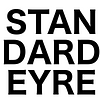You need to sign in or sign up before continuing.
Take a photo of a barcode or cover
106 reviews for:
The Writer's Journey - 25th Anniversary Edition: Mythic Structure for Writers
Christopher Vogler
106 reviews for:
The Writer's Journey - 25th Anniversary Edition: Mythic Structure for Writers
Christopher Vogler
This book is a bit heavy, but I highly recommend it if you're a writer wanting to better your craft, or if you like movies and want to dive deeper into their structure!
Vogler has some wonderful takes on Campbell's theories and rephrases them so everyone can understand them - this was a rare side-step for me, as I much prefer fiction, but a welcome one none the less!
Vogler has some wonderful takes on Campbell's theories and rephrases them so everyone can understand them - this was a rare side-step for me, as I much prefer fiction, but a welcome one none the less!
Carefully thought out and written, Vogler gives an incredible and thorough look at the core of every story structure.
He highlights the main 8 character archetypes and the 12 stages every main character goes through. He meticulously looks at each subcategory and outlines them with little room for a straying imagination.
While some of his references and examples are dated (this Millennial didn’t understand some) most of his comparisons come from classics just about anyone can recognize!
This is a wonderful book for those wanting to understand the art of story telling!
I learned several tips about writing characters and story structure, but in all honesty can’t recommend this book to others. It veered very heavily into new-age and also has some disturbing movie examples that are described in more detail than I appreciated.
I only had time to read the first section of this book, but it was interesting and enjoyable enough. I think I learned something; whether or not it will be useful for my writing remains to be seen.
Talk about a journey. Over the course of this book the writing took a brutal tumble from informative and interesting to ridiculous fluff. I went from happily staying up late to boredom and eye-rolling to disgust and finally actual anger while reading. Vogler's 370-page supposed guide to story-writing, set on the solid foundation of Joseph Campbell's work (reviewed here in the worthwhile first 70 pages), is a joke. It's a waste of time and insult to the reader, with indulgently superficial skimming of truly profound fields to back up his vague and meandering ideas.
Vogler seems perfectly unaware of the worthlessness of his repeated example of an unspecific, universal and ancient tribe with vague traditions and rituals from which all our storytelling must follow. There are no citations for this tribe or their traditions, but the logic Vogler uses is that the story structure related here is valuable and intrinsic because these universal tribal forefathers used it. He folds in cheap quotes from Aristotle and others without embarrassment, using them in all their generality to back up his unsubstantial points. There are also unbelievably (and predictably uncited) general and vague scientific examples that say little of actual science and, worse, often little to support his claims. All this devolves into a chapter on how a good story should effect several bodily organs at a time and a superficial several pages on chakras. Vogler, with little understanding of the deep worlds he's visiting, just puts together a mishmash of cultures, philosophy, religions and science (with a scattered few engaging analyses of movies according to Campbell's structure that provoke the fleeting wonder of what this book could have been) and splats it against the wall like a monkey throwing shit.
Some favorite lines towards the end of the book:
"According to some modern Hindu sages, Hitler may have been very open in the power and throat chakras, making him an effective communicator who could stir the emotions and marshal power with his voice, but he was probably shut tight in most of the other chakras."
"My motto as a story evaluator became, 'If it isn't making at least two organs of my body squirt fluids, it's no good.'"
Vogler seems perfectly unaware of the worthlessness of his repeated example of an unspecific, universal and ancient tribe with vague traditions and rituals from which all our storytelling must follow. There are no citations for this tribe or their traditions, but the logic Vogler uses is that the story structure related here is valuable and intrinsic because these universal tribal forefathers used it. He folds in cheap quotes from Aristotle and others without embarrassment, using them in all their generality to back up his unsubstantial points. There are also unbelievably (and predictably uncited) general and vague scientific examples that say little of actual science and, worse, often little to support his claims. All this devolves into a chapter on how a good story should effect several bodily organs at a time and a superficial several pages on chakras. Vogler, with little understanding of the deep worlds he's visiting, just puts together a mishmash of cultures, philosophy, religions and science (with a scattered few engaging analyses of movies according to Campbell's structure that provoke the fleeting wonder of what this book could have been) and splats it against the wall like a monkey throwing shit.
Some favorite lines towards the end of the book:
"According to some modern Hindu sages, Hitler may have been very open in the power and throat chakras, making him an effective communicator who could stir the emotions and marshal power with his voice, but he was probably shut tight in most of the other chakras."
"My motto as a story evaluator became, 'If it isn't making at least two organs of my body squirt fluids, it's no good.'"
Wow. I didn't think I'd finish this book before 2014. It's chock-full of useful information, but it's not a fun time easy read. Keep your highlighter handy and think of this one as a reference book. I think the most useful part has been how Vogler uses examples from The Wizard of Oz, Titanic, etc. That said, sometimes he goes a little crazy with the symbolism and what not. The writer's subconscious can do wonderful things. I don't think L Frank Baum sat down one day and said, "Gee, I think Toto should represent Dorothy's intuition."
But I could be wrong.
As long as you remember that all rules are meant to be broken, I think we storytellers can learn a lot from this one.
But I could be wrong.
As long as you remember that all rules are meant to be broken, I think we storytellers can learn a lot from this one.
challenging
funny
hopeful
informative
inspiring
reflective
fast-paced
informative
inspiring
medium-paced
Not as good as _Story_ by Robert McKee nor Joseph Campbell's works.








